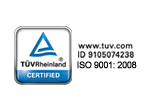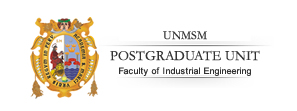
MASTER'S DEGREE IN INDUSTRIAL ENGINEERINGA commitment to optimizing industrial processes High levels of uncertainty caused by a turbulent global environment and generate business organizations operating in the country see the need for innovation in product technology, process and management to maintain and improve their competitive position. In this environment, graduates of the Master of Industrial Engineering will be able to analyze and optimize production systems of goods and services within an organization, using the various tools of industrial engineering, to respond effectively to the needs of industry and contribute to social and technological development in the region. First Semester
Second Semester
Third Semester
Fourth Semester
E: Course of the specialty I: Subject of thesis research and development
REQUIRED COURSES TECHNOLOGY MANAGEMENT QUALITY MANAGEMENT RESEARCH PLANNING OPERATIONS MANAGEMENT ENVIRONMENTAL AND SAFETY PROJECT MANAGEMENT THESIS WORKSHOP I INDUSTRIAL AUTOMATION MANAGEMENT OF THE SUPPLY CHAIN THESIS WORKSHOP II LOGISTICS MANUFACTURING SYSTEMS THESIS WORKSHOP III ELECTIVES COSTS FOR DECISION-MAKING FINANCIAL INSTRUMENTS ORGANIZATION AND ADMINISTRATION PRODUCTIVITY AND QUALITY STRATEGIC MANAGEMENT BUSINESS STRATEGY HUMAN RESOURCE MANAGEMENT Selected Topics
Join Profile
Graduate Profile
Applicants have to submit the following documents to apply for the Masters in question
Payments are made in the Office of Economics at the School of Industrial Engineering, or placing deposits UNMSM Dollars in Savings Account No. 000270016684 Financial Bank on behalf of the Faculty of Industrial Engineering UNMSM. Mondays and Thursdays from 7:00 pm to 10:00 pm and Saturday from 3:00 pm to 9:00 pm (subject to change)
Industrial Engineering Faculty - Campus UNMSM
|
||||||||||||||||||||||||||||||||||||||||||||||||||||||||||||||||||||||||||||||||||||||||||||||||||||||||||||||||||||||||||||||||||||||||||||||||||||||||||||||||||||||||||||||||||||||||||||||||||||||||||||||||||
| © 2011 - All rights reserved |
|

